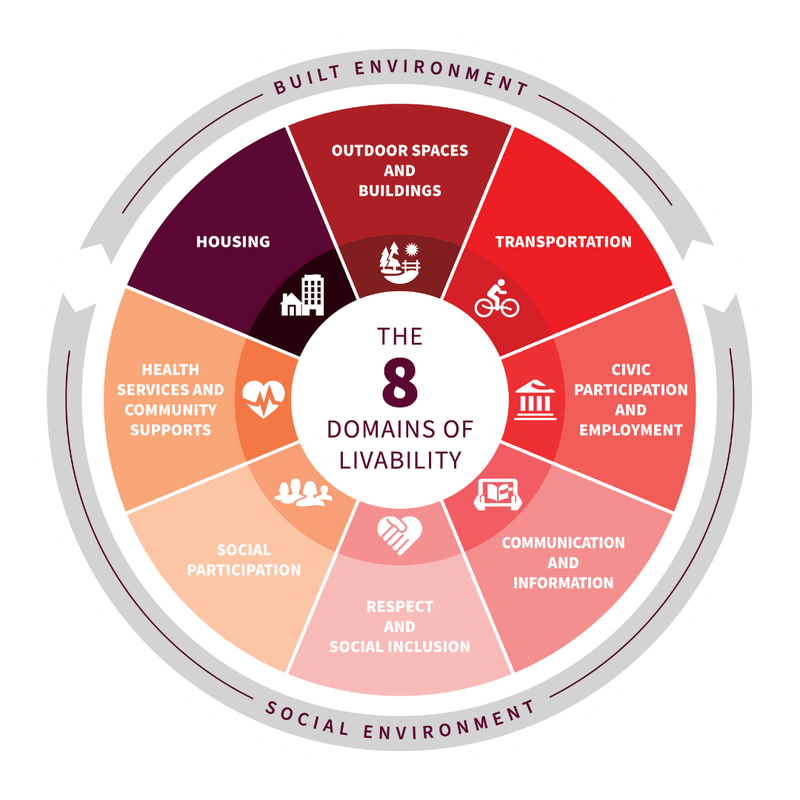Homeless share frustrations over shelter policies around sleep, illness and cold weather
Last week’s cold snap and certain shelter policies add to frustrations felt by some of the city’s chronically homeless.

MANCHESTER, NH — A cold, chill wind swirled across Manchester on a Jan. 17, causing homeless people everywhere to seek whatever shelter they could find. On a day which featured a high temperature of 17 in the afternoon, and a low temperature of 8 degrees, with wind chills often dipping into digits below zero, participants at the New Horizons shelter were asked to go outside at 5:30 p.m. after dinner ended for the evening. They could return at 6 p.m., at which time people could come inside to check in.
Each evening, participants have to check in to keep their spot at the shelter. They have from 6 p.m. until 7 p.m. to do so. Anyone who has a bed and comes after 7 p.m. has lost their spot. This happened to a woman named Jade who, while wearing a cast on her foot and walking around on crutches, was forced to spend a night in the cold. She slept in a truck for the night, bundling up as best she could.
Other people, who arrive at the regular time, often have to stand outside longer than 6 p.m. while the line thins down. During periods of heavy rain, participants crowd into a narrow wooden ramp just to gain shelter from the weather. Heavy clouds of cigarette smoke drift about everywhere, regardless of the weather or temperature. Individual human misery is palpable. The disabled and the elderly are made to go outside along with everyone else regardless of whether they can stand the cold or not, regardless of whether they get sick the following morning or not.
Forty minutes in extreme cold may not seem like a lot to those who are accustomed to such things. For homeless people, however, it’s a difficult trial to be endured. Senior citizens are forced outside along with pregnant women. People who do not own coats, hats, or gloves, are simply stuck. Some people cry to be let back inside. Unsteady hands, reddened by the cold, shake uncomfortably. Everyone wonders whether they will be the next one to fall ill and go to the hospital.
During the worst of the cold, a woman named Terri from Anchor for Hope stopped by to hand out gloves, socks, hand warmers, blankets, and shirts. Her efforts were highly appreciated by the participants, who stood outside in the freezing wind, shivering up and down. Other participants, a select few who chose to brave the elements, lined up more than an hour in advance so they could be the first inside for check-in. Some covered up in blankets.
The everyday staff at New Horizons send people out with regret. Given the choice, they say they would not send people out in the blistering cold. However, they have bills to pay and families of their own to take care of, and a job to do. They state they are simply following the rules and policies set in place.
Sleepless nights and too few showers
Lisa Anne Hampton has been homeless for 2-½ years. At one time she stayed at the New Horizons shelter for two weeks but says she left because she found the staff abusive. She now lives in a doorless tent by the river.
“There are so many of my homeless family that were kicked out of the shelter,” she said. “It is so cold out here. I cannot believe the suffering and the abuse. Where are the monetary donations going? How can anyone put all these people out in the cold when this facility is tax and donation funded? Where are the monetary donations going? These people are suffering, and there are not enough beds for all these people. My family needs warmth, and they have no warmth. And right now my heart is breaking and this is not right.”
Kari, a current participant at New Horizons, says she experienced this personally.
“They are ignoring their individual needs, they are coming back with hands white, red, turning sometimes a little green [after being outside ] for like forty to forty-five minutes, violating the client rights for emergency shelters,” she said.
While the homeless people who stay at the shelter are far from perfect, their situations are often exacerbated by rules which lead to negative mental and physical health outcomes.
Each morning, the wake-up call happens at 6 a.m. Everyone has until 7 a.m. to come downstairs. Even those who have been granted permission to sleep-in are still woken up. Regardless of how much sleep a person actually got, or regardless of whether they spent the night in the hospital and returned at 4 a.m., they still must be out of the bed by 7 a.m.

At least, this is true on paper. In practice, participants are urged to wake up and sit up as early as 6:10 in the morning, or else they will “be asked to leave.” Given that there are only eight shower units — four for each dorm — available in the morning, participants must sometimes choose between cleanliness and having a place to stay. The result is some people shower inconsistently. Participants are not allowed upstairs after 7 a.m. unless they have been cleared for late work. If this is the case, they are supposed to come down at 11 a.m. Once down, they are not allowed back up.
After coming down and eating breakfast for the morning, some participants lay on the floor and place their heads on tables. Many people are asleep again by eight in the morning. People who are night owls experience increased health problems as compared to those who are not. Fatigue throughout the day is common. Those who stay up late and wake up early face regular disruptions of their circadian rhythm, which is often difficult to correct —especially for those who have sedentary lifestyles and who consume tobacco products.
Not enough staff to cope with the challenges
The trouble is, regardless of whether a person sleeps upstairs or downstairs, they are likely to encounter difficulty going to sleep and staying asleep. With a great many people also comes noise and other unforeseen disruptions. Some people have been known to shout angrily in the middle of the night. Others cough repeatedly in their sleep. Still others are up and down out of bed using the bathroom due to illness.
Kari says she experienced this first hand.
“I wasn’t allowed to rest,” she said. “I contracted a bacteria that was confirmed by Elliott Hospital. It was from contaminated water. I only drink water that’s from here. I can’t confirm it. During that time, I was rarely allowed to go upstairs to rest. I had to sit here in the common area, running to the bathroom. In the beginning, I had to, was suggested to, sit on the floor in my own dirty clothing. I had a doctor’s note stating that rest was very important. I had a highly contagious infection and it was important to rest to avoid further hospitalization. And it came straight from the director they were no longer going to honor doctor’s notes, saying I was not allowed to go upstairs and rest. It was distressing. I feel a lot of anxiety here. I can’t take care of my basic needs. I’m subject to possible frostbite. I can’t take care of myself when I’m sick.”
When I ask about it, I am told by a staff member that doctor’s orders cannot be honored because they do not have the staff to look after people during the day upstairs.
May I suggest a correction please?
When asked, staff at New Horizons said doctor’s orders cannot be honored because they do not have enough staff to monitor people upstairs during the day.
EMTs and ambulances are a common sight in and around the shelter. They come at any time of day or night — from midnight to eight in the morning to seven in the evening — they are called upon to resolve individual health problems of a vulnerable population. At times, participants have to walk back from the hospital, depending on whether or not the hospital gives out taxi vouchers or whether a friend will give them a ride.
Injuries and illnesses are not taken into consideration whether someone gets to rest or not. Whether someone has a broken foot, or has severe vomiting and diarrhea or any other ailment, the rules are the same for everyone. Doctors’ notes are ignored. The severity of a person’s health condition is not taken into account.
Only in emergency situations, which was the case when the shelter experienced a possible outbreak of the norovirus in December, is there any flexibility for the rules. Then, participants had to be upstairs so they could be close to a toilet. There are only two bathrooms downstairs: one toilet in the men’s room and two toilets in the women’s room. Long lines can often be seen outside the men’s room, which is often less than sanitary. Puke has been left on the floor for others to encounter at various times.
At capacity with 138 people, and still more coming in from all directions to get out of the cold, New Horizons faces several challenges other organizations never experience. Participants come and go with little predictability. Those who do come often have mental health vulnerabilities which cause them to act out in non-productive ways. Additionally, for most shifts, there are simply not enough staff members to cope with the workload.
The true need is hard to measure
While grievance forms are available for participants, many of them have been ignored. Feedback forms are available for a meeting that will take place on February 4, yet no participant I spoke with was hopeful anything positive will come of it.
At New Horizons, participants are given three free meals a day. They are given blankets and clothes. They have access to free sanitation and interior climate control. No one has to pay rent to stay in the shelter. While often frustrating, participants are at least kept off the streets and prevented from experiencing the worst from the effects of inclement weather.
Case managers at the shelter are meant to help participants with their problems. They, just like everyone else, are overworked and underpaid. They are there because they genuinely want to make a positive change. However, housing is largely out of their hands. They can’t do much about the lack of housing in Manchester, or the decreasing affordability and access to transportation. They can’t do anything about people having to take subsidized housing in Coos County, not having a car or needing a car, and then becoming homeless again due to their transportation issues and/or medical vulnerabilities.
Manchester itself, according to census data, has gained roughly 23,000 people since 1970. This data accounts only for those who register for the census, and not people who decline to do so or who sleep on the streets or in shelters and are unavailable to be counted. Added to that, many homeless people move around from place to place.
There’s no exact number of how many homeless people are in need of assistance. It’s not certain how many extra houses or shelter spots would need to be open before everyone is housed and no one is sleeping on the street any longer. What is certain is that the need continues to grow. Homelessness continues to be a problem.
Even worse, among the homeless population, dignified, healthy living is difficult, if not impossible, to find. The current homeless population is largely treated like a group of inmates in a penitentiary. Without being able to sleep regularly, come in from the cold, and rest when a doctor orders them to do so, it is hard to imagine how the lives of homeless people are going to improve in any demonstrable way.
Punitive discipline is used as a way to correct undesirable behavior. For those who cannot change, or find it difficult to do so, this serves a form of punishment exacted on them for the crime of having fallen into poverty.
 Winter Trabex is a freelance writer living in Manchester. She reports on various topics around the city as a citizen journalist for the Inklink.
Winter Trabex is a freelance writer living in Manchester. She reports on various topics around the city as a citizen journalist for the Inklink.





